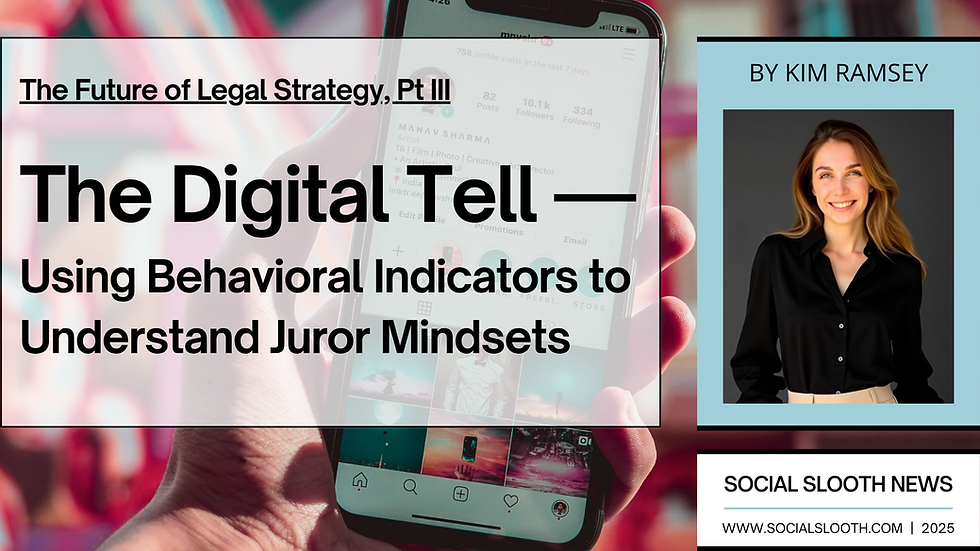March Madness and the Law: The Legal Game Behind the Game
- Vicki Maran

- Mar 21, 2025
- 4 min read
Updated: Apr 2, 2025

March Madness isn’t just about buzzer-beaters, Cinderella stories, and office bracket pools—it’s also a legal powerhouse. From sports betting and trademark disputes to player compensation and media rights, the tournament is a goldmine for legal drama. While the players battle it out on the court, attorneys, regulators, and businesses are engaged in their own high-stakes game.
So, let’s break down how the law sneaks its way into college basketball’s biggest event!
1. Betting on the Big Dance: The Legal Gamble
Ever filled out a bracket or thrown a few bucks into an office pool? You’re not alone. Millions of Americans wager on March Madness, making it one of the biggest gambling events of the year. But is it legal? That depends.
After the 2018 Supreme Court decision in Murphy v. NCAA, states got the green light to legalize sports betting. Now, more than half the country allows it—but with strict regulations. Sportsbooks must be licensed, gambling addiction protections must be in place, and compliance is closely monitored.
Oh, and if you’re a player, coach, or ref? Betting is a big no-no. The NCAA has zero tolerance for gambling in the sport, and getting caught could mean suspensions, fines, or even career-ending consequences.
2. Show Me the Money: NIL Deals and March Madness
Thanks to the NCAA’s 2021 rule change, college athletes can now cash in on their Name, Image, and Likeness (NIL). That means endorsement deals, sponsored social media posts, and even merch.
March Madness is prime time for NIL deals. If a player has a breakout tournament, their value skyrockets overnight. But here’s where it gets tricky—NIL deals must follow state laws and NCAA guidelines. Contracts can be messy, and there are ongoing debates over what counts as a fair deal versus an improper inducement.
Schools also have to balance NIL with Title IX, ensuring fair opportunities for male and female athletes. So while March Madness might make stars out of players, lawyers are busy making sure their deals don’t violate any rules.
3. March Madness®: Don’t Even Think About Saying It
The NCAA is super protective of its trademarks. The phrase “March Madness”? Trademarked. “Final Four”? Trademarked. “The Big Dance”? Yup, that too.
If a business tries to use any of these terms without permission, they’ll likely get a swift cease-and-desist letter. The NCAA doesn’t mess around when it comes to intellectual property, and companies have learned the hard way that a simple “March Madness Sale” could land them in legal hot water.
The takeaway? If you’re running a business, stick with something generic like “College Basketball Tournament Fever” (which, let’s be honest, doesn’t have the same ring to it).
4. Media Rights: The Billion-Dollar Broadcast Battle
Ever wonder why March Madness games are spread across CBS, TBS, TNT, and truTV? That’s because these networks pay big money—we’re talking billions—to air the tournament.
Broadcasting rights are a major legal battlefield. Every contract spells out who can show the games, where they can be streamed, and who gets a cut of the advertising money. And don’t even think about live-streaming a game illegally—the NCAA and its partners actively track down unauthorized broadcasts and take legal action.
5. The Eligibility Rules: Who Gets to Dance?
March Madness isn’t just about basketball—it’s also about making sure players actually belong in the tournament.
The NCAA has strict eligibility rules covering academic performance, recruiting, and amateurism. Schools that break the rules—whether by offering improper benefits or fudging academic records—risk having their wins vacated, their coaches suspended, or even being banned from future tournaments.
If you remember the FBI’s 2017 investigation into college basketball bribery scandals, you know just how deep these issues can go. While the players are trying to win a championship, compliance officers are working just as hard behind the scenes to keep their teams eligible.
6. March Madness at Work: A Productivity Nightmare
Let’s be honest—March Madness wreaks havoc on office productivity. Employees stream games on their computers, obsess over their brackets, and spend hours debating upset picks.
Is it illegal? Nope. But some companies have policies against sports betting at work, and excessive time spent on March Madness could lead to HR issues. Some bosses embrace the madness (hello, company-wide bracket challenges!), while others crack down to keep employees focused.
And if you think that’s a headache, consider this: There’s an ongoing legal debate about whether college athletes should be considered employees under labor law. If they are, the NCAA could face a seismic shift in how student-athletes are paid, managed, and protected under workplace laws.
Final Buzzer: The Legal Madness Never Stops
March Madness is more than just a basketball tournament—it’s a legal playground filled with betting laws, NIL deals, trademark battles, broadcasting rights, and eligibility disputes. While the players fight for a championship, lawyers, compliance officers, and regulators are working just as hard behind the scenes to keep everything in check.
So as you cheer for your bracket picks and celebrate the Cinderella stories, remember: The legal side of March Madness is just as intense as the action on the court!



Comments